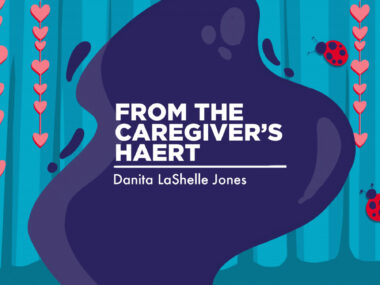Even as children get older, life doesn’t necessarily get easier
Take it from this columnist, who has a teenager with HAE
Written by |

“I feel like it’ll be a little easier when they start moving,” my friend said as we had lunch in a local sandwich shop.
A laugh bubbled up and escaped my mouth before I could stop it.
Thankfully, my friend wasn’t offended. But it was clear that I was laughing at her and not with her.
“That doesn’t help me feel better,” she smirked.
I gathered myself. Although I wanted to ease my friend’s worry, I couldn’t lie.
After one of my friends gave birth to her twins, she sought my advice about navigating two newborns. Admittedly, I didn’t have any. Having twin newborns is about as overwhelming as it sounds. Contrary to popular belief, new babies don’t consider that another baby nearby needs you. There are often two demands for bottles, two needs for burping, and two simultaneous needs for diaper changes. And sometimes, in the rare moments when it happens in tandem, there’s no room for rest.
“I can’t tell you that it’s easier,” I told her. “It’s a different kind of hard.”
It was true. When our twins started crawling and walking, my husband and I faced new challenges, such as keeping them out of the pantry, discouraging them from climbing on counters, and using NFL-like strategies to catch them if they decided to run in separate directions. It wasn’t “newborn baby” difficult, but it wasn’t easier.
I could sympathize with my friend’s hope that the older her children got, the easier they would be to handle. However, it wasn’t the twins that made me think that way.
Growing up with HAE
Our oldest daughter, whom we lovingly call Ladybug, was 10 years old when she was diagnosed with hereditary angioedema (HAE). Because of her fear of needles and trips to the hospital, we had a tough time getting her to tell us when she wasn’t feeling well. Moreover, she was more likely to engage in activities that often aggravate her body into an HAE flare.
Most notably, after she consumed an entire bowl of raw spinach during lunch at school, which landed her in the pediatric intensive care unit, I remember thinking, “I’ll be so glad when she gets older and understands what it means to manage this better.”
But any person raising a teenager will tell you they come with their own set of interesting complications. Does she viciously fight infusion needles or IVs? No. Do I have to worry about her sneaking food that will trigger anaphylaxis? Not lately. Does that mean that managing her HAE is less complicated? Not in the least.
Now, like most teenagers, Ladybug does a lot of “figuring out” how long she can go before telling me she needs Berinert (human C1 esterase inhibitor), or hiding how uncomfortable she is so she can go to school, or my personal favorite, fruitless negotiations about why she doesn’t need her Takhzyro (lanadelumab) shot today.
Young, chronically ill children can be hard to manage. As teenagers, it’s a different kind of complicated. But as long as we look at it as a journey, I’m up for the challenge.
We might not be where I’d like to be, but we aren’t where we were; that makes tackling the different kind of hard a little easier.
Note: Angioedema News is strictly a news and information website about the disease. It does not provide medical advice, diagnosis, or treatment. This content is not intended to be a substitute for professional medical advice, diagnosis, or treatment. Always seek the advice of your physician or other qualified health provider with any questions you may have regarding a medical condition. Never disregard professional medical advice or delay in seeking it because of something you have read on this website. The opinions expressed in this column are not those of Angioedema News or its parent company, Bionews, and are intended to spark discussion about issues pertaining to angioedema.






Leave a comment
Fill in the required fields to post. Your email address will not be published.